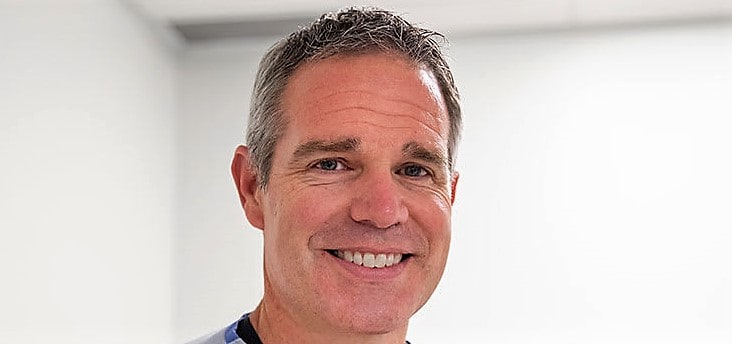St. Catharines doctor devotes time to helping transgender community
Published June 9, 2022 at 11:53 am

As the Emergency Department Site Lead at the Niagara Health St. Catharines site, you’d think Dr. Tim St. Amand has more than enough on his plate.
After all, he is already in charge of managing the physician group, overseeing scheduling and staffing of the department, and implementing new initiatives to enhance care for patients and staff, in addition to providing direct patient care at Niagara’s busiest hospital.
However, back in 2016, after reading a book that really inspired him, he decided to set aside a day a week to support transgender clients at the Quest Community Health Centre in St. Catharines.
The doctor says he uses his work at Quest and in the St. Catharines Emergency Department as an opportunity to advocate for greater understanding of the transgender community and ensure safe, compassionate and inclusive healthcare for all.
“It’s that sense of trying to do the right thing,” Dr. St. Amand says. “It’s the little, tiny corner of the world I’m in and trying to make it better.”
St. Amand oversees the medical transition of transgender clients at Quest, which is the province’s second-largest transgender clinic, having cared for more than 1,000 clients since 2010.
He said it could be something as simple as using a person’s preferred name and pronouns, even if they’re different than what appears on their health card and remembering that transgender patients experience the same illnesses as others.
“Transgender is not an abnormal gender, it’s just not a common gender,” he says. “It’s a normal thing. It’s been around since the beginning of time.”
It’s not a large crew at Quest. The team includes one other physician, a nurse practitioner and a social worker. He prescribes and monitors hormone therapy for transgender people who come from as far away as Windsor or Sudbury, as well as other communities where they cannot find compassionate care.
He admits that many in the transgender community still feel the onus is on them to teach healthcare providers how to care for them “when that’s not really their role when they’re not feeling well.”
St. Amand says that’s what compels him in his work to be an advocate, ally and to educate others about supporting the transgender community. “It’s asking for and using the names and pronouns patients use and normalizing that practice,” he says.
“It’s having empathy.”
insauga's Editorial Standards and Policies advertising





